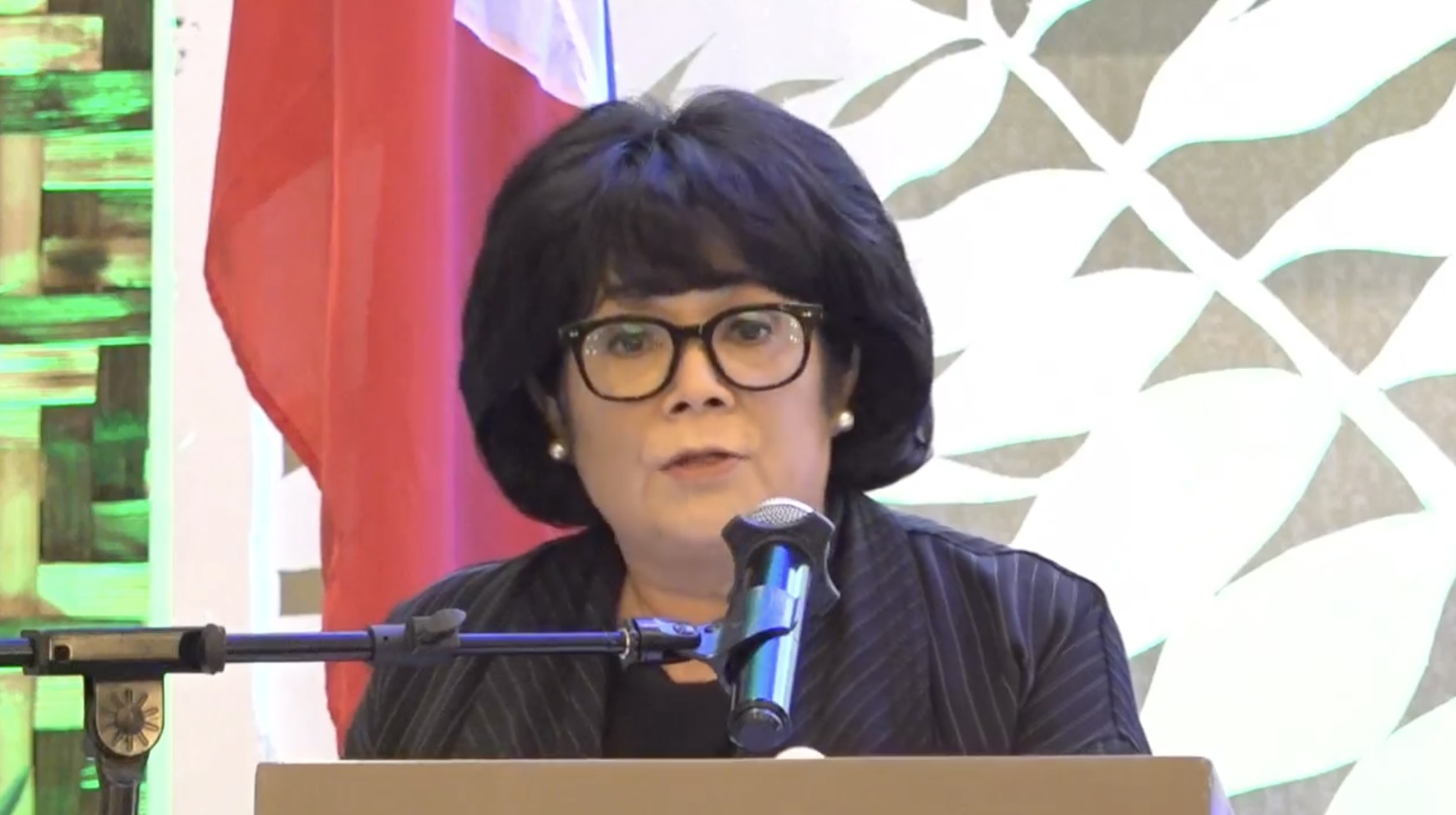DENR, European Union unveil P3.65 B program to help Philippines combat climate change, adapt 'Green Economy'

The Department of Environment and Natural Resources (DENR) and European Union (EU) launched on Monday, March 11, a P3.65 billion program that would help mitigate environmental degradation and combat climate change while fostering economic growth and social inclusivity in the country.
The "Green Economy Programme for the Philippines" (GEPP) aims to accelerate the country's transition towards a greener and more sustainable economy, said Environment Secretary Maria Antonia Yulo-Loyzaga.
By transitioning towards a "Green Economy", Loyzaga said the country will be able to reduce its waste and plastic usage, ensure water supply and wastewater treatment, promote energy efficiency, and deploy renewable energy to address the impacts of the climate crisis .
"Embracing green practices fosters resource efficiency, waste reduction, energy conservation, and optimizes natural resource use. This not only supports the conservation of our environment but also enhances our global competitiveness while fostering self-reliance and sustainability," Loyzaga explained.
"Transitioning to a Green Economy creates a wealth of opportunities for job creation as well. From renewable energy to sustainable agriculture and eco-tourism, new avenues for employment will emerge as part of a truly just transition that can address unemployment while fostering innovation and skills development aligned with the trajectory of the emerging global market for the Green Economy," she added.
The GEPP is designed to run from 2023 to 2028 with a budget of €60 million (P3.67 billion) in the form of a grant. The program operates on three distinct levels: the national government, local government units (LGUs), and private sector.
At the national level, the DENR and EU will mobilize expertise to facilitate policy formulation and promote renewable energy and energy efficiency.
At the LGU level, they will drive a circular economy transition and introduce innovation in order to accelerate the implementation of the program. The circular economy is a model of production and consumption which implies reducing waste to a minimum.
"We recognize that LGUs are pivotal in driving the circular economy,
providing fertile ground for innovative and scalable solutions across the landscape," Loyzaga said.
There will be 60 LGUs that will be covered by the program, including 10 identified pilot LGUs namely Baguio City, Caloocan City, Quezon City, Pasig City, Puerto Princesa City in Palawan, Metro Manila, Ormoc City in Leyte, Davao City, Island Garden City of Samal in Davao del Norte, and Siargao Islands.
Meanwhile, the GEPP also requires collaboration with the private sector as it "creates better conditions for private sector investment."
"It also addresses the development and stabilization of our Micro, Small and Medium Enterprises (MSMEs). It supports waste reduction strategies and circular solutions," Loyzaga noted.
The project will also carry out initiatives to accelerate the deployment of renewable energy technologies and enhancing energy efficiency measures to mitigate climate change impacts.
"A Green Economy provides us with both adaptation and mitigation strategies to address the impacts of climate change. For a country facing extreme weather events and the potential for environmental degradation, enhancing resilience is fundamental," Loyzaga said.
The environment chief said that by working in these areas, the Green Economy Programme aims to achieve, amongst others, the following results over the next five years:
-an estimated 25,000 tonnes plastic recycled and reintegrated into the productive chains;
- at least thirty (30) LGUs to introduce sources of separate collection systems for plastic waste for recycling;
- at least 6,000 Micro, Small and Medium Enterprises to apply sustainable production practices through circular supply chain management; and
- creation of at least 2,500 new ‘green’ jobs in businesses linked to the circular economy.
The implementers of the Green Economy Programme will include Germany's development agency GIZ, and Expertise France.
Notably, Spain, Finland, Germany, and France have also made financial contributions to make the program a reality. Other European Member States including Austria, Netherlands, and Sweden will contribute their expertise to ensure the success of the initiative.
The program will also help in achieving the goals of various international climate commitments and national environmental policies of the Philippines. These include the Philippines’ Nationally Determined Contributions (NDC), National Adaptation Plan (NAP), Philippine Action Plan for Sustainable Consumption and Production, and the Extended Producer Responsibility (EPR) law.
"The successful launch of the Green Economy Programme for the Philippines is part of the EU’s new Global Gateway Strategy and shows our commitment worldwide to combating climate change while promoting inclusive economic development," EU Ambassador Luc Véron said.
"By working hand in hand with DENR and other key stakeholders, we aim to foster a more resilient and prosperous future for the people of the Philippines," he shared.